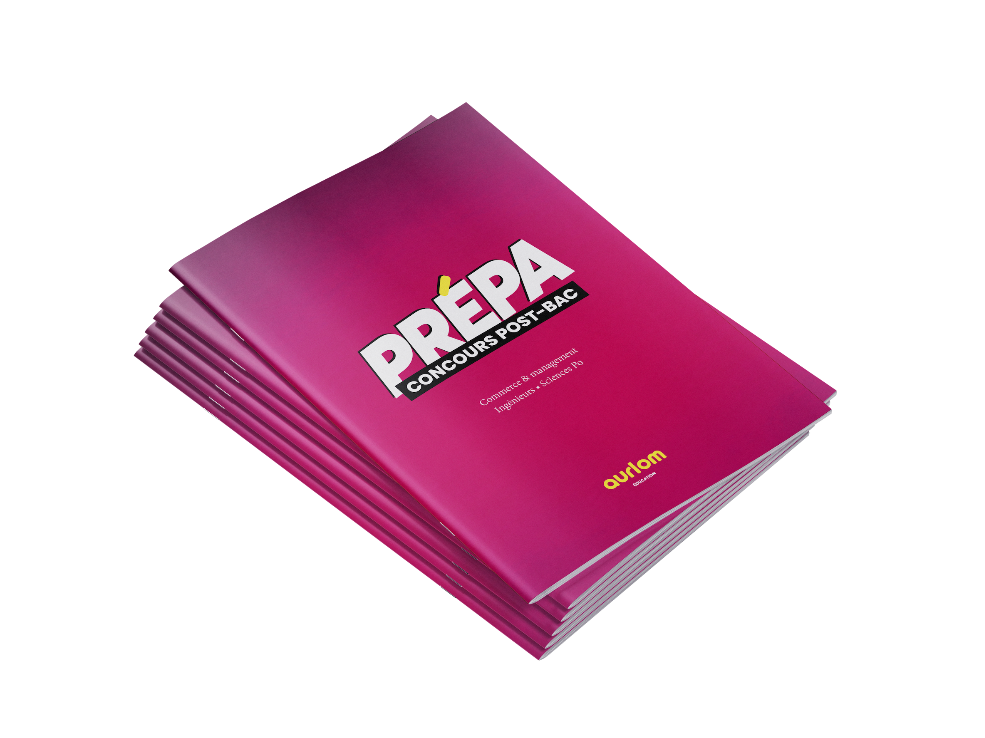
Concours ACCÈS : exercices d'anglais corrigés gratuits
Préparez l'épreuve d'anglais du concours ACCÈS avec ces exercices gratuits extraits de sujets d'annales.
Consignes :
Chaque question comporte quatre items, notés A. B. C. D. Pour chaque item, vous devez signaler s'il est correct.
PART I: GRAMMAR AND VOCABULARY
| Énoncés | Corrigés |
|
A. Australia will be a prime example of such a two-speedy economy B. Germany's wood will be sour in spite a robust economy C. Some rich countries will see remarkably radical reforms D. 2012 will delighten numerologists. |
A. FAUX. Australia will be a prime example of such a two-speedy economy. L'Australie constituera un exemple de choix pour illustrer une économie à deux vitesses. B. FAUX. Germany's wood will be sour in spite a robust economy. C. VRAI. Some rich countries will see remarkable radical reforms. D. FAUX. 2012 will delighten numerologists. |
|
A. Companies have the better chance of thriving if they are solid. B. For the last ten years we had our share of hits and misses C. The world will start to bid farewell to start-ups. D. China could find itself be overtaken by India. |
A. FAUX. China could find itself be overtaken by India. To find oneself se forme avec le participe passé seulement. >>> China could find itself overtaken by India. B. FAUX. Companies have the better chance of thriving if they are solid. C. FAUX. For the last ten years we had our share of hits and misses. D. VRAI. The world will start to bid farewell to start-ups. |
|
A. There have been a touch of optimism and joy amid globalisation lately. B. Towards the end of the year, there could be growing gloom over the economy C. The sense of progress will held true in 2012. D. America will mark the ten anniversary of the terrorist attacks. |
A. FAUX. There have been a touch of optimism and joy amid globalisation lately. Une touche d'optimisme et de joie est apparue récemment dans le processus de mondialisation. >>> There has been a touch of optimism and joy amid globalisation lately. C. FAUX. The sense of progress will held true in 2012. Le sens du progrès sera tenu pour vrai en 2012. D. FAUX. America will mark the ten anniversary of the terrorist attacks. L'Amérique marquera le dixième anniversaire des attaques terroristes. Ten signifie dix, non pas dixième. On utilisera tenth. |
|
A. The year ahead will produce stricken examples of the power of technology. B. Look at politics and you will often see two clashing forces. C. A sense of division and frustration is going to prevail in international D. It offers a glimpse of what the world might be like in 25 years time. |
A. FAUX. The year ahead will produce stricken examples of the power of technology. L'année à venir sera le terrain d'exemples frappants du pouvoir de la technologie. Stricken examples signifie exemples frappés, non pas exemples frappants. Frappant se traduit par striking. >>> The year ahead will produce striking examples of the power of technology. B. VRAI. Look at politics and you will often see two clashing forces. C. FAUX. A sense of division and frustration is going to prevail in international affaires. Affaire (avec un « e » final) n'existe pas en anglais. D. FAUX. It offers a glimpse of what the world might be like in 25 years time. L'expression X years' time s'écrit avec une apostrophe indiquant la possession. Le mots years étant déjà au pluriel, il ne faut noter que l'apostrophe ici, pas le s possessif. |
|
A. Nothing can stop an idea which time has come. B. The savagery could too be the start of something more beneficial. C. For the like of Greece, there is really no choice. D. The gap is likely to be more than 100 billion |
A. FAUX. Nothing can stop an idea which time has come. B. FAUX. The savagery could too be the start of something more beneficial. C. FAUX. For the like of Greece, there is really no choice. |
PART II : READING COMPREHENSION
TEXTE :
I felt I had every reason to roll my eyes when I heard that Alfred Uhry's 1987 play “Driving Miss Daisy” was opening on Broadway. My cynicism was based less on my experience of the show than on Broadway's customary banal or condescending take on racial and cultural politics. A musical about the famous nineteen-thirties Alabama interracial rape case, and Vanessa Redgrave and James Earl Jones in Uhry's paper- thin character study about a widowed Jewish former school teacher and her black, functionally illiterate driver? I didn't want to imagine any of it.
But actors of the calibre of Redgrave and Jones can cook up a rich pot out of tepid water. Uhry's lightweight script could have been a hindrance to Esbjornson's vision but it becomes instead an opportunity to collaborate with his actors. As Hoke's relationship with Miss Daisy moves from antagonism and paranoia to hope and dependence, Redgrave and Jones rely less on the script for the dramatic power. They tailor the text to fit their own talents by using it as a jumping-off point for their shared theatrical imagination. In so doing, the show's stars say what Uhry does not: how complicated and different and alike this Jewish woman and this black man are, both trying to live in the world unvictimized by their outsider status.
Watching the pair, it was tempting to imagine them in material that deserved their mettle – an adaptation of Bernard Malamud's stories about blacks and Jews. But Uhry's episodic script supplies the actors with a certain freedom: they can't feel as responsible for the play's language as they might if “Driving Miss Daisy” were a great piece. Instead, Redgrave and Jones honor each other's power as they rewrite Uhry's script with their what-could-be-better-than performing bodies.
Adapted from The New Yorker, December 2010
 |
| Énoncés | Corrigés |
|
A. The writer admires the play “Driving Miss Daisy”. |
A. Rien dans le texte ne permet de le dire. |
|
A. Broadway plays are usually respectful of race and cultural politics. |
A. Broadway's customary banal or condescending take on race and cultural politics... |
|
A. The plot is about the conflict between the Jews and the blacks. |
A. As Hoke's relationship with Miss Daisy moves from antagonism and paranoia... |
|
A. Good actors are not enough to make a good play. |
A. Redgrave and Earl Jones can cook up a rich pot out of tepid water. |
|
A. The director imposed his vision on the actors. |
A. Collaborate with his actors. |
L'auteur
 |
Franck Attelan
Fort de plus de 20 ans d'expérience dans l'enseignement, Franck Attelan est le directeur du Groupe Aurlom qui réunit les activités d'Aurlom Prépa, Aurlom BTS+ et High Learning. Diplômé de l'ESSEC, il a d'abord occupé des postes en marketing chez LVMH et L'Oréal en France, aux Etats-Unis et au Japon. Il est par ailleurs Directeur de la collection Le Choix du Succès aux éditions Studyrama, dont les ouvrages ont déjà totalisé des ventes supérieures à 300 000 exemplaires. |






